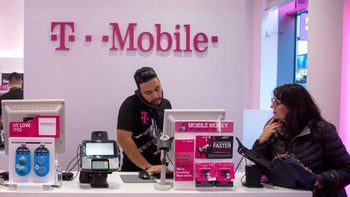Musk says Verizon is putting us at risk as Starlink prepares to take over US airspace

Verizon may be the mobile carrier you've picked to stay connected, but it also plays a crucial role in ensuring our safety while flying. However, two years after Verizon landed a $2 billion contract to upgrade the Federal Aviation Administration's IT infrastructure, it looks like the FAA is now making the switch to Starlink internet terminals.
The Federal Aviation Administration has begun testing the use of SpaceX's Starlink satellite internet terminals in the national airspace system.
Last week, Elon Musk reportedly approved the shipment of 4,000 Starlink terminals to the FAA for this initiative, which will be called TDM X. The goal is to have the program fully operational within 12 to 18 months. Meanwhile, Musk took to his social media platform, X, to claim that the Verizon system isn't working properly, posing a serious risk to air travelers.
Starlink has already proven its ability to deliver high-speed internet to some of the most remote locations on Earth, thanks to SpaceX's growing satellite constellation. However, the FAA's use of Starlink has sparked concerns over whether Musk – who currently heads the Department of Government Efficiency (DOGE) in the Trump administration – could potentially influence government contracts, including those at the FAA, which also oversees SpaceX's rocket launches.
Still, Verizon's own network for the FAA isn't up and running yet, but it should be soon. Verizon's EVP, Joe Russo, pointed out that its network could coexist with Starlink, and if the Starlink tests focus on services like weather applications, they could actually complement the infrastructure Verizon is building for the FAA. However, whether that's Musk's plan remains to be seen.
The Federal Aviation Administration has begun testing the use of SpaceX's Starlink satellite internet terminals in the national airspace system.
— The FAA (@FAANews) February 25, 2025
Last week, Elon Musk reportedly approved the shipment of 4,000 Starlink terminals to the FAA for this initiative, which will be called TDM X. The goal is to have the program fully operational within 12 to 18 months. Meanwhile, Musk took to his social media platform, X, to claim that the Verizon system isn't working properly, posing a serious risk to air travelers.
The Verizon system is not working and so is putting air travelers at serious risk
— Elon Musk (@elonmusk) February 25, 2025
As you may have expected, all this has raised questions about potential conflicts of interest within Musk's business empire and the future of the $2 billion contract Verizon was awarded in 2023 to upgrade critical infrastructure.
Starlink has already proven its ability to deliver high-speed internet to some of the most remote locations on Earth, thanks to SpaceX's growing satellite constellation. However, the FAA's use of Starlink has sparked concerns over whether Musk – who currently heads the Department of Government Efficiency (DOGE) in the Trump administration – could potentially influence government contracts, including those at the FAA, which also oversees SpaceX's rocket launches.
Still, Verizon's own network for the FAA isn't up and running yet, but it should be soon. Verizon's EVP, Joe Russo, pointed out that its network could coexist with Starlink, and if the Starlink tests focus on services like weather applications, they could actually complement the infrastructure Verizon is building for the FAA. However, whether that's Musk's plan remains to be seen.













Things that are NOT allowed: